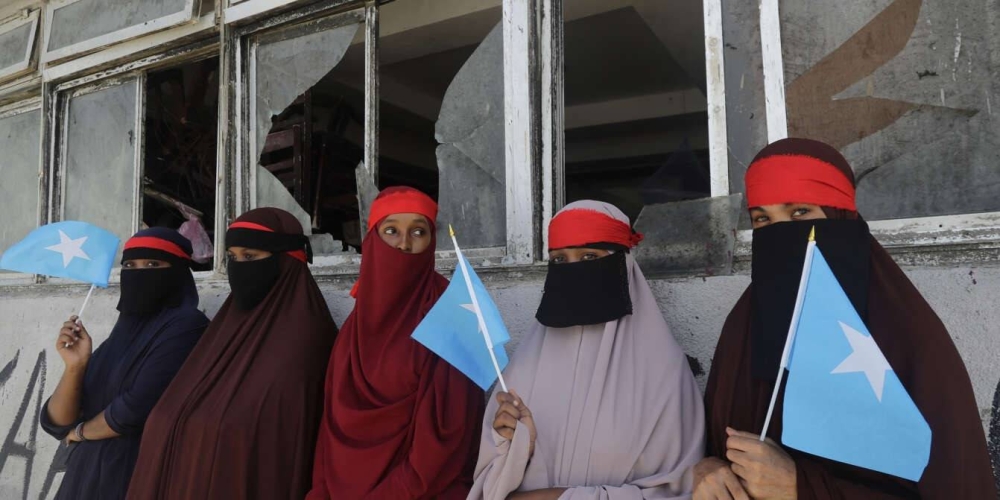
Somali police said yesterday they have confiscated hundreds of face veils from women in a major city as they enforced a long-standing ban, with witnesses saying the niqabs were then burnt.
The authorities in the southern state of Jubaland imposed a ban on the niqab - a full-face veil worn by some Muslim women - in the port city of Kismayo in 2021 for security reasons, although officers said the edict was not comprehensively followed.
“The police confiscated hundreds of face veils from women who covered their faces in violation of a standing ban order,” Kismayo police commissioner Colonel Warsame Ahmed told AFP. Officers began the operation in various neighbourhoods across Kismayo from July 31, he said, with instructions to fine and detain women found wearing niqabs.
“This is for security reasons because there are concerns that Al Sheabab may use the face veil to disguise (themselves as) women to carry out attacks,” he said, referring to the militant group waging a long and bloody insurgency against the fragile central government. In the deadliest attack in the capital Mogadishu in recent months, 37 people were killed in a suicide bomb and gun assault on a busy beachfront on Friday that was claimed by Al Shebaab.
Government officials have suggested the attack was in reprisal for the killing by the armed forces of scores of Al Shebaab fighters in July when they attacked military bases in Jubaland. Both sides had claimed they inflicted heavy casualties against the other in the raids and subsequent gunfights on the bases around 90km from Kismayo.
Adan Salad, a Kismayo police officer, said the authorities were enforcing the niqab ban now as they were worried the group “may try for revenge by targeting civilians”. He said Al Shebaab fighters would “do anything to disguise” themselves in order to carry out assaults in Somalia, a predominantly Muslim country. Witnesses said the police openly set fire to the confiscated veils.
“The police stopped some women whose faces were covered and removed the face veil, they also collected some from the market and burned them publicly,” Hasan Muse told AFP.
The niqab has also been banned by the authorities in the southern towns of Baidoa and Dolow for security reasons.
